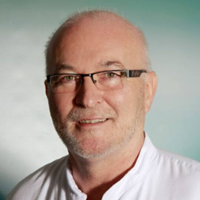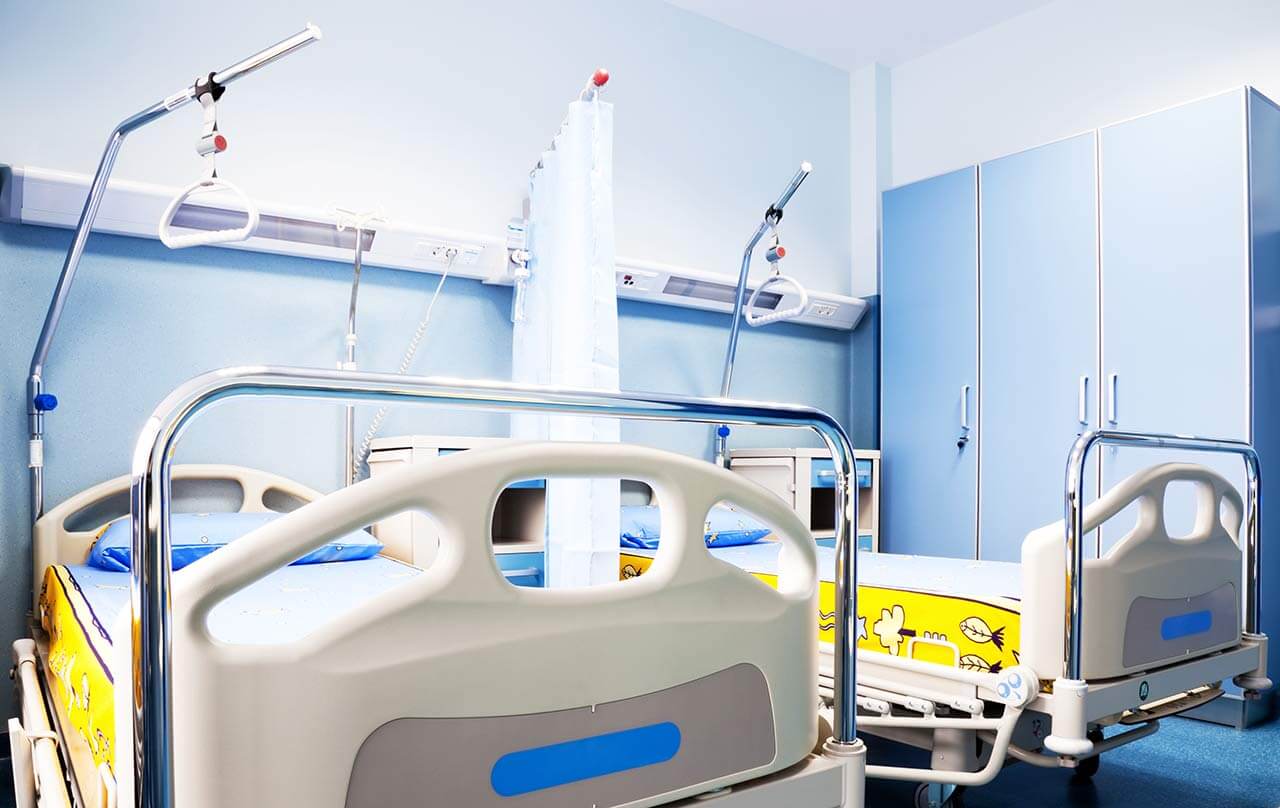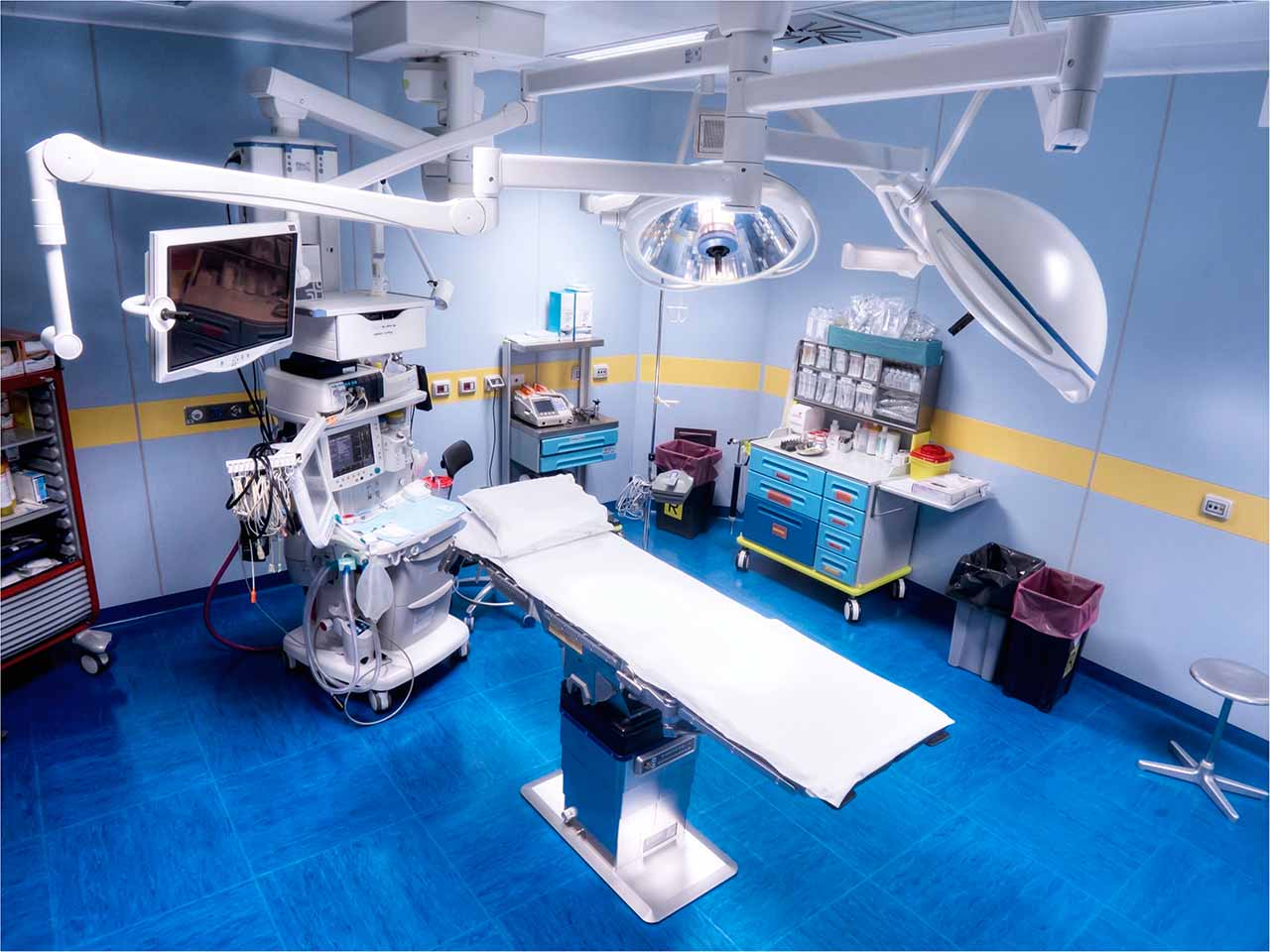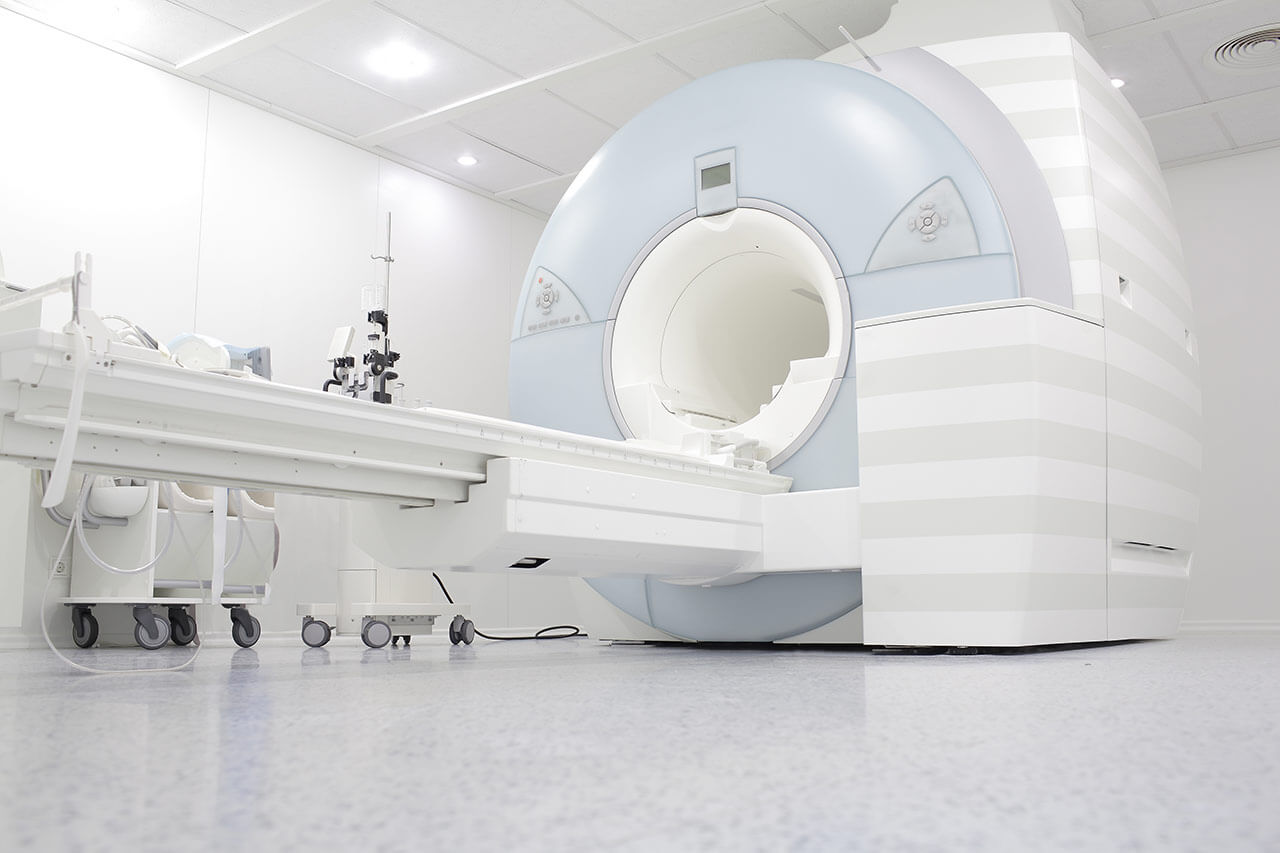
The program includes:
- Initial presentation in the clinic
- clinical history taking
- review of medical records
- physical examination
- X-ray of hip joint
- CT/MRI scan (on indication 650/1200 €)
- nursing services
- consultation of related specialists
- consultation of the chief physician and all leading experts
- development of individual treatment plan
Required documents
- Medical records
- X-ray examination, MRI/CT scan (if available)
Service
You may also book:
 BookingHealth Price from:
BookingHealth Price from:
About the department
The Department of Pediatric Orthopedics at the Asklepios Children's Hospital Sankt Augustin offers the widest options for the prevention, diagnostics and treatment of musculoskeletal diseases in children. The department has modern equipment for comprehensive diagnostics: X-ray and ultrasound scanning, magnetic resonance imaging, laboratory tests. When fighting against orthopedic pathologies, doctors use modern therapeutic options, ranging from conservative treatment methods to surgical interventions, including especially complex ones. The department's specialists use a special approach to treatment, which takes into account the characteristics of a growing child's body. Thanks to the successful results of clinical practice, the department has the status of one of the best Pediatric Orthopedic Centers in Germany. The medical facility has created an excellent infrastructure for the maximum comfort of young patients and strictly observes hygiene standards, which guarantees the safety and efficiency of medical services provided. The department is headed by Dr. med. Andreas Protzel.
The department's pediatric orthopedists demonstrate excellent results in the treatment of spinal deformities, in particular scoliosis. The department specializes in the treatment of idiopathic, congenital and neuromuscular scoliosis. The choice of treatment method depends on the angle of curvature and the degree of maturity of the patient's skeleton. With mild scoliosis, it is often possible to achieve successful results with the use of a special therapeutic corset. The corset must be worn day and night, 23 out of 24 hours. The results of therapy are controlled by the attending physician (as a rule, the patient needs to see a doctor once every 3 months). After achieving the desired result, the patient gradually gets used to life without a corset. In case of more severe curvature, the only effective treatment method is surgery. The use of the very latest intraoperative monitoring systems eliminates the risk of damage to the spinal cord and nerve endings. As a rule, the patient stays in the hospital for about 2 weeks after the operation. The patient has rehabilitation during this period of time. In addition, physiotherapy plays an important role in scoliosis treatment.
Another priority focus of the department's work is the treatment of hip dysplasia. Congenital dysplasia is an impairment of the formation of the hip joint, caused by insufficient ossification of the acetabulum. In severe cases, the femoral head can move relative to the acetabulum (in such cases, it is about hip dislocation). The optimal treatment method is selected depending on the general development of the child and the severity of dysplasia. Along with conservative therapy, the department's doctors also use surgical methods such as open reposition and operations for joint function improvement.
The department often admits young patients with Perthes disease. The pathology is necrosis of the femoral head. The disease develops at the age of 4-8 years, has 4 stages and progresses relatively slowly. Perthes disease is more common in boys than in girls. The diagnostic protocol for the suspected disease includes a clinical examination and X-ray scanning. In some cases, magnetic resonance imaging may also be performed. Treatment regimen is determined individually, depending on the stage of the disease. In the early stages, therapeutic exercises and drug therapy are the basis of treatment. Special orthopedic devices are also used to unload the joint, or the joint is immobilized with the help of splints and fixation devices. It should be noted that the course of treatment is quite long and takes from one to several years. In complex clinical cases, the department's pediatric orthopedists resort to a surgical intervention.
The department's therapeutic options are supplemented by surgical repair of O- and X-shaped lower limbs, as well as correction of leg length discrepancy. The department's surgeons successfully perform minimally invasive operations to implant plates and fixation devices that correct the growth of the bone structures of the lower extremities.
The department's clinical focuses include:
- Diagnostics and treatment of scoliosis: idiopathic, congenital and neuromuscular
- Conservative treatment with corsets
- Surgical repair
- Diagnostics and treatment of hip dysplasia
- Conservative treatment methods: the use of orthoses, repositioning splints, plaster casts
- Surgical repair: open reposition, surgical correction of the femur and pelvis
- Diagnostics and treatment of leg length discrepancy
- Epiphysiodesis (surgical intervention to temporarily or permanently stop the growth of one of the lower limbs)
- Implantation of intramedullary rods for lower limb lengthening
- The use of distraction systems with external fixation
- Diagnostics and treatment of O- and X-shaped lower limbs
- Hemiepiphysiodesis
- Diagnostics and treatment of Perthes disease
- Drug therapy and therapeutic exercises
- Surgical interventions
- Other medical services
Photo of the doctor: (c) Asklepios Klinik Sankt Augustin GmbH
About hospital
The Asklepios Children's Hospital Sankt Augustin positions itself as an ultramodern maximum care medical facility for children and adolescents. A distinctive feature of the hospital is the exceptionally high quality of medical service, a sensitive attitude and compassionate care for young patients. The hospital diagnoses and treats children of all age groups, ranging from premature infants to adolescents. The treatment is based on an integrated approach, whereas parents are also involved in the therapeutic process. They serve as a reliable support to their children.
The hospital is proud of its unique experience of more than 40 years. The hospital has 225 beds for the treatment of young patients on an inpatient basis. More than 9,000 inpatients undergo treatment here annually, and about 40,000 more children receive outpatient medical care. The number of patients of the hospital increases every year, which indicates the prestige of the medical facility in Germany and abroad.
The hospital has 15 specialized departments, including the Department of Pediatric and Adolescent Medicine, Pediatric Urology, Pediatric Cardiology, Pediatric Cardiac Surgery, Pediatric Orthopedics, Pediatric Neurosurgery. The medical team of the hospital consists of more than 850 employees. The department's doctors have excellent reputation in professional circles and make every effort to provide effective treatment.
In their clinical practice, doctors pay due attention to interdisciplinary cooperation, which allows them to cover the entire spectrum of pathologies in children, including complex and rare clinical cases.
The services of the hospital meet the most strict requirements of the German healthcare system. The quality of medical services is regularly monitored by external and independent expert commissions. Since 2009, the hospital has been awarded the "Ausgezeichnet. FÜR KINDER." certificate, which is the most prestigious one for pediatric medical facilities in Germany. In addition, the hospital has the "Aktion Saubere Hände" certificate that guarantees the maximum safety of treatment for young patients and the compliance of the hospital with the highest hygiene standards.
Photo: (с) depositphotos
Accommodation in hospital
Patients rooms
The patients of the Asklepios Children's Hospital Sankt Augustin live in comfortable rooms designed in bright colors. The standard room furnishings include an automatically adjustable bed, a bedside table, a wardrobe, and a TV.
Meals and Menus
The patients receive an individual, self-selected breakfast and dinner. Lunch is prepared centrally for all patients. Parents can dine at the on-site cafeteria.
Television
After agreeing with the parents and the medical staff of the hospital, young patients may watch TV in the rooms of their department. The rooms for parents also have TVs.
Religion
The hospital has a prayer room where young patients and their parents can be alone for prayer. Divine services are held on Wednesdays from 12:15 to 12:30.
Accompanying person
When treating children under the age of 7 years or if special care is necessary, one of the parents may stay for free in their child’s patient room (a separate bed is provided), meals are included. To do this, one should register in the appropriate department. In other cases, as well as for the second accompanying person, accommodation and meals should be paid separately (hostel for parents or apartments in Ronald McDonald Haus).




